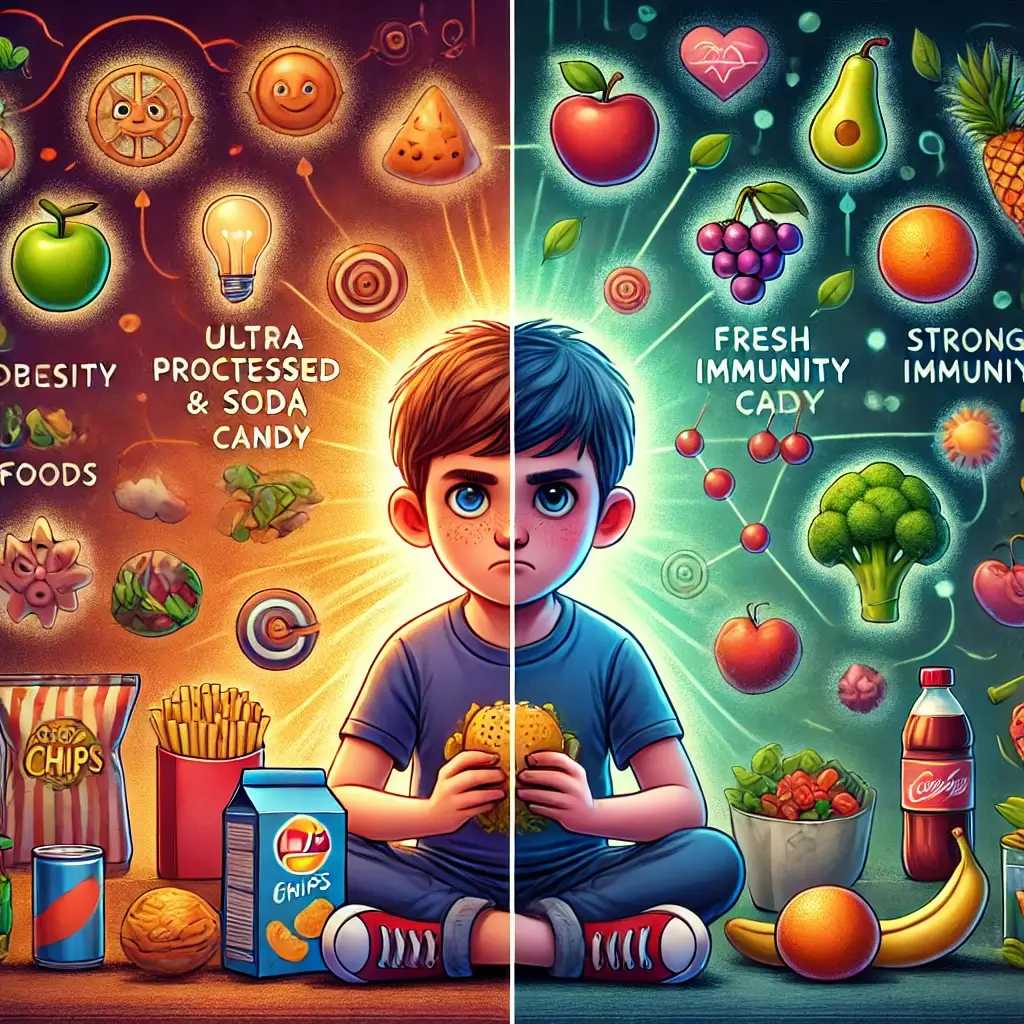The Growing Concern of Ultra-Processed Foods in Children’s Diets
Ultra-processed foods (UPFs)—industrial formulations often loaded with additives, preservatives, and artificial flavoring—have become an alarming staple in children’s diets globally. The convenience and low cost of these foods make them appealing to busy families, but their impact on child development and growth periods is raising red flags in the medical and scientific community. Mounting evidence suggests that UPFs are not only linked to obesity and chronic illnesses but also significantly impair cognitive, emotional, and physical development during critical growth periods.
Expert Insights on UPF Impact
Dr. Elena Rodriguez, Director of Pediatric Nutrition at Children’s Research Hospital, emphasizes, “The effects of ultra-processed foods on children’s growth go far beyond calorie intake and weight gain. We’re seeing developmental issues that could have lifelong consequences.” Recent findings in the Journal of Pediatric Nutrition (2024) reveal that children with diets comprising over 60% UPFs experience a 40% increase in attention difficulties and a 35% reduction in cognitive performance compared to peers consuming predominantly whole foods. These figures underline an urgent need for awareness and intervention.
Cognitive and Behavioral Effects of Ultra-Processed Foods
The neurological effects of UPFs are particularly concerning. Research shows that UPFs can alter brain structure and function in children, leading to measurable declines in learning, memory, and emotional regulation.
Long-term Study Results on Cognitive Impact
A 2024 longitudinal study published in Child Development Quarterly followed 3,000 children over five years. It revealed that children with diets high in UPFs showed a 30% reduction in memory formation capacity, a 25% decrease in sustained attention spans, and a 40% impairment in problem-solving and learning abilities.
Physical Development Concerns
In addition to their neurological impact, UPFs disrupt normal physical development through mechanisms that affect growth patterns, hormonal balance, and immune health.
Key Warning Signs for Parents
Parents often struggle to identify the subtle but critical warning signs of excessive UPF consumption in their children. Pediatricians like Dr. Sarah Thompson recommend looking out for behavioral indicators and physical symptoms.
Practical Solutions for Families
Transitioning away from UPFs requires gradual changes that are practical and sustainable for families. Start small by replacing one processed snack per day with a whole food alternative, such as fresh fruit or homemade granola.
Technology’s Role in Dietary Improvement
Technology can be a valuable ally in reducing UPF consumption through food tracking tools and interactive learning platforms.
Final Thoughts on UPF Impact
The relationship between ultra-processed foods and child development is clear: diets rich in UPFs compromise not only physical health but also cognitive and emotional growth. The evidence is overwhelming, with studies consistently demonstrating the long-term risks of processed food consumption.
Evidence of Positive Change
While reversing these trends may seem daunting, small, consistent changes can yield significant improvements. A study in the Journal of Pediatric Nutrition (2024) reported that families who reduced UPF consumption by 50% saw a 55% improvement in children’s cognitive performance and a 45% reduction in behavioral issues within just six months.
References
Journal of Pediatric Nutrition (2024). “Ultra-Processed Foods and Cognitive Development in Children.”
Child Development Quarterly (2024). “Five-Year Analysis of Dietary Patterns and Neurological Outcomes in Youth.”
Nutritional Psychology Review (2024). “The Behavioral Consequences of Additive-Heavy Diets in Children.”
Pediatric Health Outcomes Research (2024). “Impact of Ultra-Processed Foods on Immune and Metabolic Health.”
Brain Development Studies (2024). “Neuroplasticity and Diet: The Role of Nutrition in Cognitive Growth”

